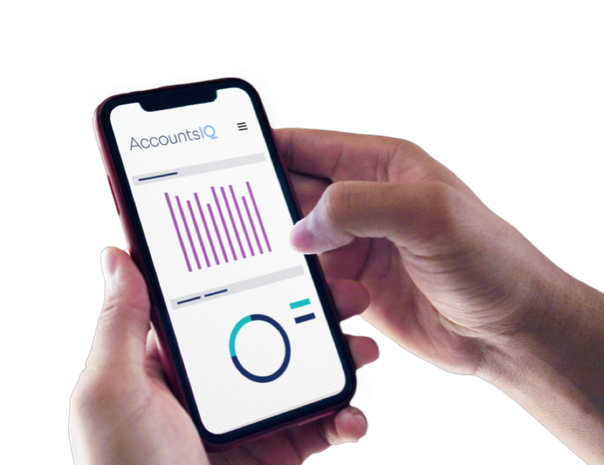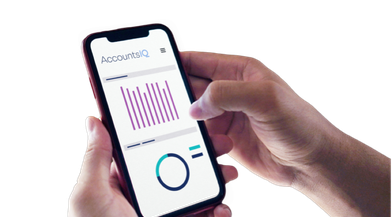Management Accounting: what is it and why is it so important?

What is management accounting?
Management accounting is the measurement, collection, analysis and presentation of financial information about a business to its management or leadership in order to support their decision making and inform how they pursue their goals. In a larger company or organisation, management accountancy often includes taking the data collected by those involved in regular accounting and financial management, and producing a more detailed analysis. This is done using a holistic view of the accounts and accompanying business processes.
Management accounts include in-depth analysis and reports, which are normally prepared for presentation to senior management and internal stakeholders, who are able to use the information provided to support their decision making and shape the direction of the business or organisation.
What are the functions of management accounting?
Management accounting involves the combination of regular accounting with more holistic financial and business management considerations. Some of the key functions which management accounting is intended to carry out are:
Liaison with management
Synthesising data and analysis drawn from standard accounting and financial management processes into a form suitable for presentation to senior management and shareholders. A good management accounting system should have smart reporting functions with a high level of customisation to allow for detailed and highly valuable insights.
Forecasting and identifying trends
Making forecasts and predictions about the future direction of the business, based on financial data. Spotting trends in financial activity and performance can be easier when taking a management accounting approach thanks to the wider range of sources used.
Supporting better decision making
Informing smarter decision making, for example with regard to which markets to target, whether to expand internationally, or which products to stock more of. Management accounting also allows stronger understanding of the organisation’s financial capacity and future potential, allowing stronger financial judgments to be made.
Managing risk and compliance
Considering and analysing potential risk, and ensuring compliance with regulations and tax protocols such as Making Tax Digital. Spotting risks may involve identifying instances where there has been an over-allocation of resources to areas where there is insufficient certainty of a strong return.
Identifying funding and investment opportunities
Using financial data to identify the most promising opportunities for investment and the reallocation of funds to benefit the business. When this insight and analysis is presented to those in leadership positions, it enables smarter decision making and allocation of resources.
Why is management accounting so important?
Having strong management accounting practices is crucial to a business because the information and support it provides enables the best possible business practices to be adopted and decisions to be made in a better-informed manner. The importance of management accounting lies in its ability to take a company-wide view of financial performance, and the fact that since it is an internal process rather than a standardised practice, it can be tailored to suit the needs of the individual organisation. It allows the examination of each area or department individually, analysing their operations from a financial perspective in order to determine where improvements can be made.
What is a management accounting system?
Management accounting is often done via a digital system, which might involve using more complicated desktop software or can be done via a cloud-based platform. Both of these kinds of software systems enable financial data to be digitally stored and used for management accounting, but a cloud-based financial management system can be a more effective tool thanks to its greater efficiency and multi-functionality.
A cloud-based management accounting system should allow you to access core accounting functions such as a general ledger and accounts payable and receivable. It should also allow the incorporation and integration of other business systems, such as those for customer relationship management, staff timesheets and so on, so that this information can be factored into analysis and reporting.
Types of management accounting
Management accounting covers a number of different areas and can result in a number of different reports, which each have different purposes. The kinds of work and reports which fall under the umbrella of management accounting could include:
- Budget reporting: Provides an analysis of a company’s or department’s financial performance and costs so that budgets can be managed.
- Accounts receivable ageing: Analyses invoices to give a breakdown of how long customer balances have been outstanding.
- Constraint analysis: Identifies where there are limitations within a sales process, production line or supply chain to understand the impact on revenue and cash flow.
- Trend forecasting: A crucial part of management accounting is using past and present financial information to spot patterns and develop forecasts for the future.
- Cost managerial accounting report: Shows all the costs of manufacturing different products over time and helps to determine pricing and profit margins.
What is the difference between management accounting and financial accounting?
Financial accounting serves a different purpose to management accounting, because it’s generally aimed at providing information to external parties, while management accounting involves the development of financial information for internal use. Management accounts are presented to management and senior leadership within a company or organisation, whereas financial accounting is usually done for the benefit of potential investors, for banks or for government regulators and institutions. Often, financial accounting is required by law, while management accounting is undertaken optionally.
Management accounting generally involves the integration of other business systems with an accounting system, so that more aspects of the business or organisations can be viewed together. This allows management accounting to provide more holistic assessments of business performance. Meanwhile, the functions of financial accounting are largely focused on showing more straightforward evidence of the financial situation of the organisation overall, rather than providing analysis or considering various internal processes and areas of interest. Financial accounting usually intends to provide a snapshot of the financial situation of a company or organisation at a single point in time, while management accounting often includes analysis of historic trends and performance, and forecasting into the future.
Recent articles
-
 Blog | Apr 2022
Blog | Apr 2022What financial data do companies need to attract investment?
Find out more -
 Blog | Mar 2022
Blog | Mar 20227 finance pain points when growing a business
Find out more -
 Blog | Mar 2022
Blog | Mar 2022Why growing companies should live in the Cloud
Find out more -
 Blog | Apr 2025
Blog | Apr 2025Building better financial control for property sector CFOs
Find out more
Speak to one of our experts to see how AccountsIQ can transform your finance function
Get in touch




